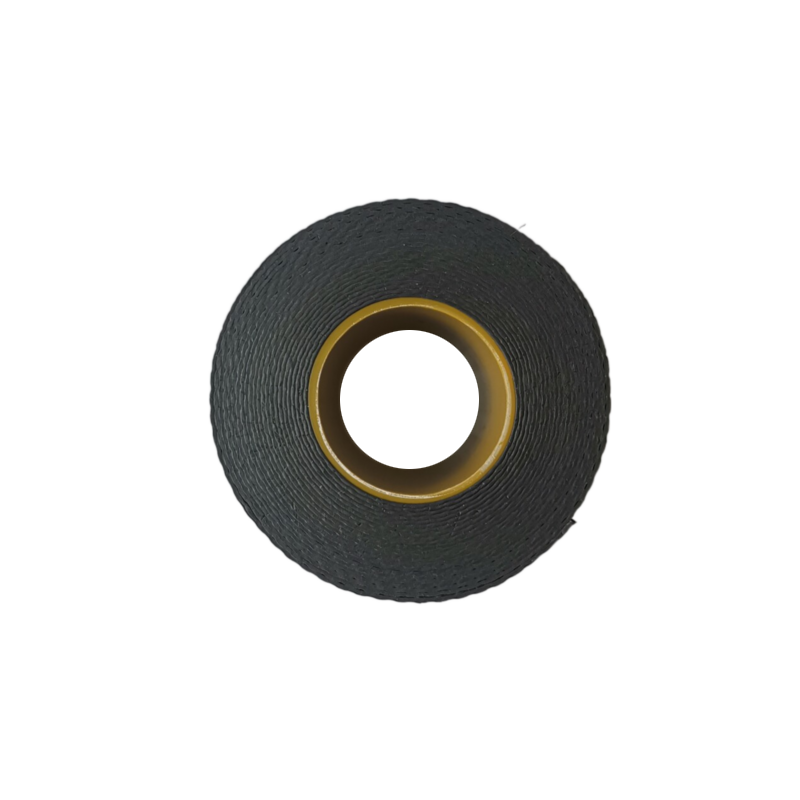The Importance of Cloth Tape in Electrical Applications
In the realm of electrical work, safety and efficiency are paramount. One tool that has garnered attention for its reliability and versatility is cloth tape. Though often overshadowed by its plastic counterparts, cloth tape is an indispensable resource in the toolkit of electricians and DIY enthusiasts alike.
Cloth tape, also known as fabric tape, is composed of a woven material that is usually coated with an adhesive on one side. This design provides several advantages that make it suitable for various electrical applications. One of the most significant attributes of cloth tape is its durability. Unlike standard electrical tapes that can tear easily, cloth tape offers superior strength, making it ideal for bundling wires and securing them in place. This robustness minimizes the risk of wear and tear, which can lead to shorts and electrocution hazards.
Another reason cloth tape stands out is its excellent resistance to extreme temperatures. Electrical work often involves environments where heat can be a concern. Cloth tape can withstand high temperatures without losing its adhesive properties or degrading, ensuring that it remains effective even under challenging conditions. This temperature resilience is crucial when wrapping wires that may be near heat sources or exposed to outdoor elements.
Furthermore, cloth tape is often favored for its flexibility. The material can adapt to various surfaces, making it suitable for wrapping around irregular shapes or securing components in complex electrical setups. The tactile nature of cloth tape also allows for easy handling, enabling quick application by electricians in tight or awkward spaces. Electricians can utilize cloth tape for tasks ranging from covering exposed wiring to insulating connections, ensuring that every job is completed with precision and care.
cloth tape for electrical

Moreover, one of the less discussed yet crucial benefits of cloth tape is its noise-dampening properties. Electrical equipment often produces vibrations that can lead to mechanical noise, which can be disruptive in both residential and commercial settings. Cloth tape can be employed to wrap around devices or cables, reducing vibrations and contributing to a quieter operation overall. In sound-sensitive environments like recording studios or offices, this feature proves invaluable.
Operating in diverse conditions also requires tools that can withstand exposure to different elements. Cloth tape is often engineered to resist moisture, making it an excellent choice for outdoor applications or environments prone to humidity. This waterproofing ensures that electrical connections remain intact and insulated against potential corrosion or failure, extending the lifespan of electrical installations.
While cloth tape has many benefits, it should be applied judiciously. It is not meant to replace all forms of electrical tape, particularly in applications that require specific electrical insulation properties. Instead, it serves as a versatile alternative or companion to traditional electrical tapes. By understanding the strengths of cloth tape, electricians can better equip themselves to tackle projects with confidence.
In conclusion, cloth tape has carved its niche in the world of electrical applications through its durability, temperature resistance, flexibility, noise dampening capabilities, and moisture resistance. As a reliable and versatile tool, it has become essential for professionals and enthusiasts looking to enhance their safety and efficiency while working with electrical systems. Whether for minor repairs or large-scale projects, incorporating cloth tape into one’s toolkit is a wise decision that can ultimately lead to a safer working environment and better results.
-
The Versatility of Cloth Insulation TapeNewsApr.07,2025
-
The Power of Self Amalgamating Silicone TapeNewsApr.07,2025
-
The Importance of Weatherstrip Seal: Your Ultimate Protection SolutionNewsApr.07,2025
-
Tape Electrical Insulation: A Reliable Solution for Your Electrical NeedsNewsApr.07,2025
-
Discover the Wonders of Electrical Splicing TapeNewsApr.07,2025
-
Discover the Versatility of PVC Electrical TapeNewsApr.07,2025
